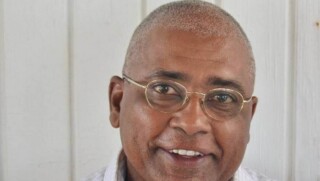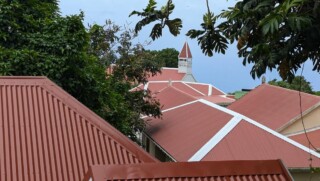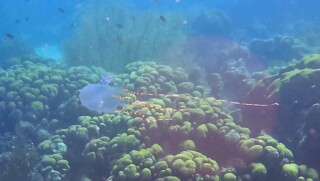Caribbean Islands Celebrate Earth Hour
This coming Saturday, governments and businesses across all six islands of the Kingdom are rallying for nature during WWF-Earth Hour. Lighting on bridges, buildings, and streetlights at various locations will be turned off for one hour as a signal for the vulnerable nature threatened by climate change.
The World Wide Fund for Nature (WWF-NL) is the driving force behind Earth Hour in the Netherlands, but spontaneous events are now being organized across the country. WWF-NL approached governments and businesses in the Dutch Caribbean to participate in Earth Hour, which takes place globally on March 23 from 8:30 to 9:30 p.m. local time. This call was widely supported.
With the cooperation of the Curaçao Ports Authority and Aqualectra, areas around the Brion Square, the Pontoon Bridge, the Handelskade, and the Governor’s Palace will be darkened. Government organizations in Aruba, Bonaire, St. Eustatius, and Saba, along with energy company STUCO N.V. and telecommunications company Eutel N.V., will turn off the lights of their buildings. Port St. Maarten will dim the non-essential lights of the Causeway Bridge, and Saba Electric Company will switch off streetlights in three parts of the island (Hell’s Gate Guts, Well’s Bay Road, and Fort Bay Road). WWF-NL also encourages the local community to join Earth Hour.
The participation of the Caribbean islands in Earth Hour reflects a commitment to addressing the increasingly tangible impacts of climate change. Small islands are particularly vulnerable to climate change. Due to rising sea levels and a warming planet, the likelihood of extreme weather such as severe droughts, intense floods, and hurricanes is high. This has a significant impact on the islands’ economy, as well as the well-being and prosperity of the population.
Earth Hour is an annual initiative by the international WWF (World Wide Fund for Nature). The initiative began in 2007 in Sydney as a small-scale action to draw attention to climate change. In the years since, it has grown into the world’s largest movement for nature conservation. In addition to turning off lights, the nature organization encourages everyone to do something positive for nature for more than 60 minutes (hence the 60+ logo): for example, eating more plant-based foods, recycling more, planting a tree, etc.












